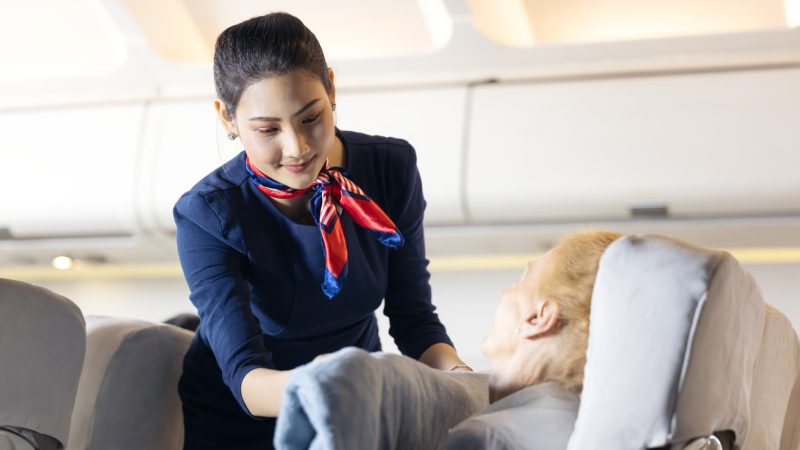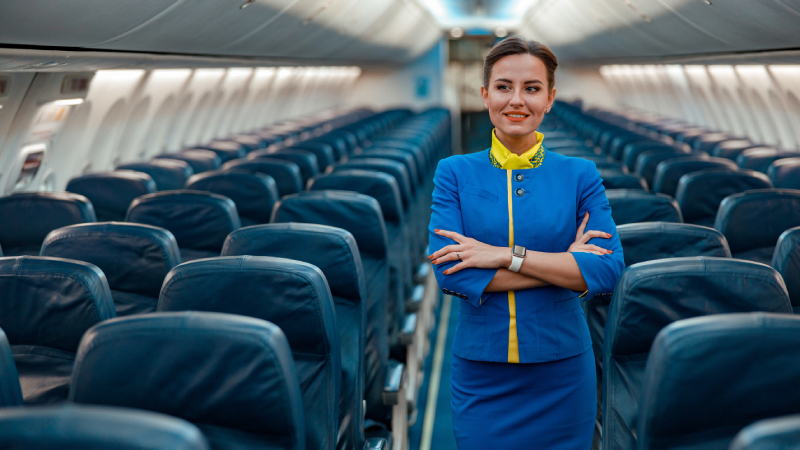Interview strategies help aspiring flight attendants stand out in a competitive industry. With online tests and in-person assessments, cabin crew interviews are often thorough, and offer opportunities to showcase one’s qualifications in a variety of environments.
Read on for important tips that you can use after graduation.
Future Flight Attendants Come Prepared
Successful job applicants know that there are no substitutes for careful preparation. With mock interviews, applicants can prepare set answers to likely questions. In general, candidates should be ready to discuss their previous employment, educational background, career aspirations and expectations of the job. These prepared answers can convey one’s qualifications with the utmost clarity and concision, eliminating awkward pauses in the interview. While this preparation is crucial, candidates should also avoid sounding too scripted—or unable to think on their feet.
Future flight attendants should also be advised that multi-phased interviews will assess different qualities at different stages. Whereas video questionnaires might examine technical knowledge, face-to-face interviews might be oriented toward experience and qualities. Throughout the process, successful applicants arrive informed of what is being assessed—and prepared for that phase.

Successful Applicants Combine Professionalism and Friendliness
Once they have put in the pre-interview work, candidates can feel confident and ready to convey their qualifications. The best applicants project professionalism while also being sociable. While waiting for interviews to start, candidates should be ready to engage interviewers and other applicants in conversation, even on unrelated topics. This shows employers evidence of a friendly demeanour—an important quality for a future flight attendant.
Candidates can approach the interview itself as an opportunity to discuss their passion. The best candidates speak slowly and ensure regular eye contact, asking interviewers for clarifications—or whether they have suitably answered their questions. Airline interviewers might also place candidates in problem-solving scenarios to assess their flight attendant preparation. For instance, Alaska Airlines has reportedly asked candidates what they would do if they saw a fellow employee texting during takeoff. In such cases, applicants can request a few moments to think, signalling an interest in giving the most thorough response.
Post-Interview Approaches Are Key to Becoming a Flight Attendant
Applicants can help their chances even after the interview. Candidates are advised to prepare a few questions for the interviewers themselves, expressing their interest in the company’s mission and priorities. Candidates should also inquire about when they can expect to hear back about their interview, and even follow up via email or telephone to communicate a continuing interest in the position. These follow-up messages can help candidates summarize their qualifications and even note qualities they might not have mentioned during the interview itself.
After flight attendant college, airline professionals can commit themselves to learning from each interview process. Candidates can write down the perceived strong points and weak points of each interview experience, and determine how best to follow up with an interviewer—or prepare for the next opportunity.

Are you interested in becoming a flight attendant?
Contact Eton College to know more about our program!



